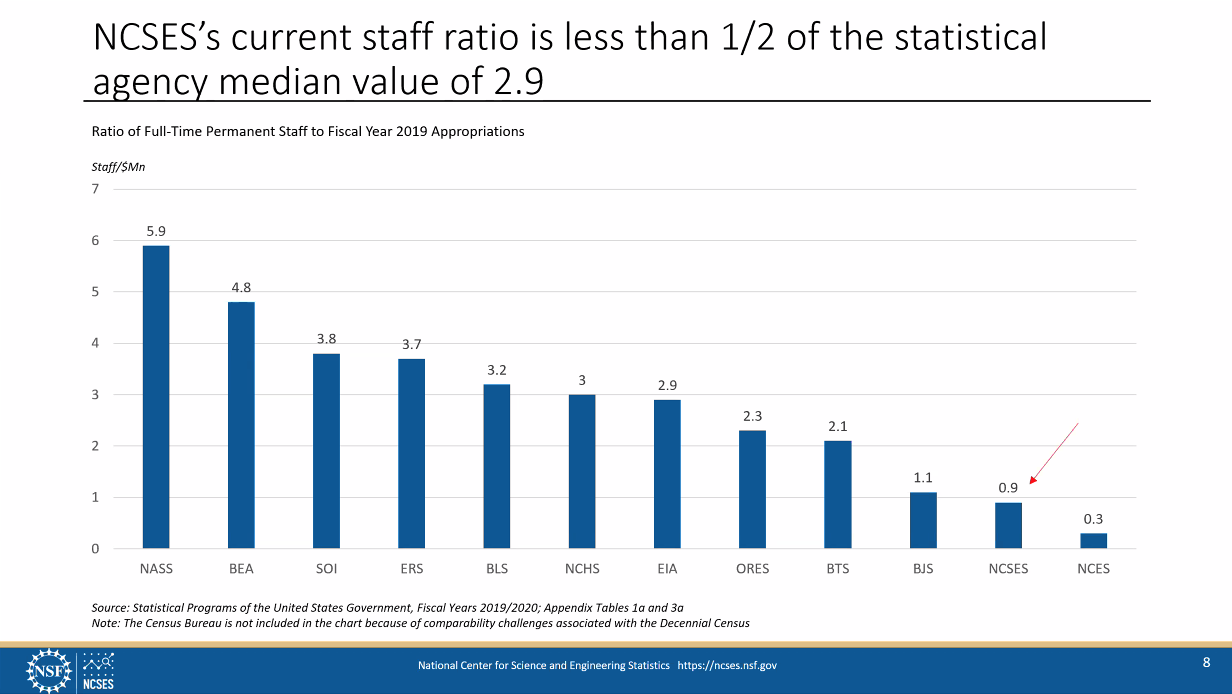May 26, 2022
The Advisory Committee (AC) for the Social, Behavioral, and Economic (SBE) Sciences Directorate at the National Science Foundation (NSF) met on May 20 , chaired by Dr. Dominique Brossard, from the University of Wisconsin, Madison. The committee experimented with a shortened format, meeting for just one day rather than the two full days that has been traditional.
Dr. Kellina Craig-Henderson, Acting Director of SBE, and other senior staff shared updates on directorate programs, budget, and activities, including recent staffing changes. Notably, Dr. Craig-Henderson announced that Dr. Joan Sereno has been hired as the incoming Director of the Division of Behavioral and Cognitive Sciences (BCS). Dr. Sereno, a linguist from the University of Kansas and member of FABBS member society Psychonomics, will take over when Dr. Marc Sebrechts completes his rotation in August and returns to his position at the Catholic University of America.
The AC heard from Dr. Vipin Arora and Dr. John Finamore , the Deputy Division Director and Chief Statistician respectively, from the National Center for Science and Engineering Statistics (NCSES). They highlighted that the President’s Fiscal Year 2023 Budget Request calls for additional staff at NCSES, which is currently understaffed compared to the other major federal statistical agencies.

Dr. Sandra Graham, AC member and former FABBS Board member, asked about demographic data collection, both in NCSES surveys and NSF’s administrative collection of applicant and reviewer data. She suggested that more detailed data collection and reporting, specifically disaggregated data, would allow NSF to better track the impacts of their efforts to improve diversity in STEM, while also providing more useful data for researchers.
NCSES staff assured Dr. Graham that they are looking at ways to expand the data they collect while maintaining its usefulness and usability. The Office of Management and Budget (OMB) at the White House coordinates standardized data collection practices across federal agencies, limiting the ability of NCSES to make changes on its own. Nonetheless, NCSES staff regularly meet with OMB and colleagues across federal statistical agencies to address these questions. As one example, Dr. Finamore relayed that there have been discussions about moving from a five-option question on race to one that includes 14 options, allowing responses to be broken into more precise sub-groups.
In hearing from NSF Director Sethuraman Panchanathan, the AC was asked to think about how SBE supports the broader mission of the agency, and how best to integrate with and make the most of new initiatives, such as the new Directorate for Technology, Innovation, and Partnerships (TIP). One area of strong agreement was that the current review process can be a key roadblock to interdisciplinary research, suggesting that reviewers can be partial to the familiar, to the detriment of exciting and innovative new science. One idea proposed that NSF might conduct pre-panel training on the language and approaches of other relevant disciplines to help reviewers better understand interdisciplinary proposals.
Finally, the AC members broke into small groups for a “Visioning Exercise” to brainstorm on the future of SBE. Dr. Craig-Henderson challenged the Committee to address four big-picture questions:
- Is “Social, Behavioral, and Economic Sciences (SBE)” the best name for the Directorate?
- Should SBE’s programs be bounded along disciplinary lines or by research cluster (or theme)?
- Are there areas of research represented in SBE currently that are no longer a priority?
- What are the opportunities and challenges for the SBE sciences to establish and nurture relevant to partnerships outside of NSF?
Members of the AC generally agreed that the Directorate’s programs are too numerous and do not follow consistent organizing principles. Dr. Adam Russell, a member of the Committee with experience at the Defense Advanced Research Projects Agency (DARPA), suggested that the Directorate could adapt an element of the DARPA model by which programs would automatically expire after a set period of time, necessitating proactive rather than passive renewal.
The Committee seemed unsure about a potential name change, but offered a number of suggestions that might do a more succinct job of capturing the breadth of disciplines supported by SBE, including “Human Systems” among others.
The discussions provided useful feedback that the Directorate will be able to build on going forward.